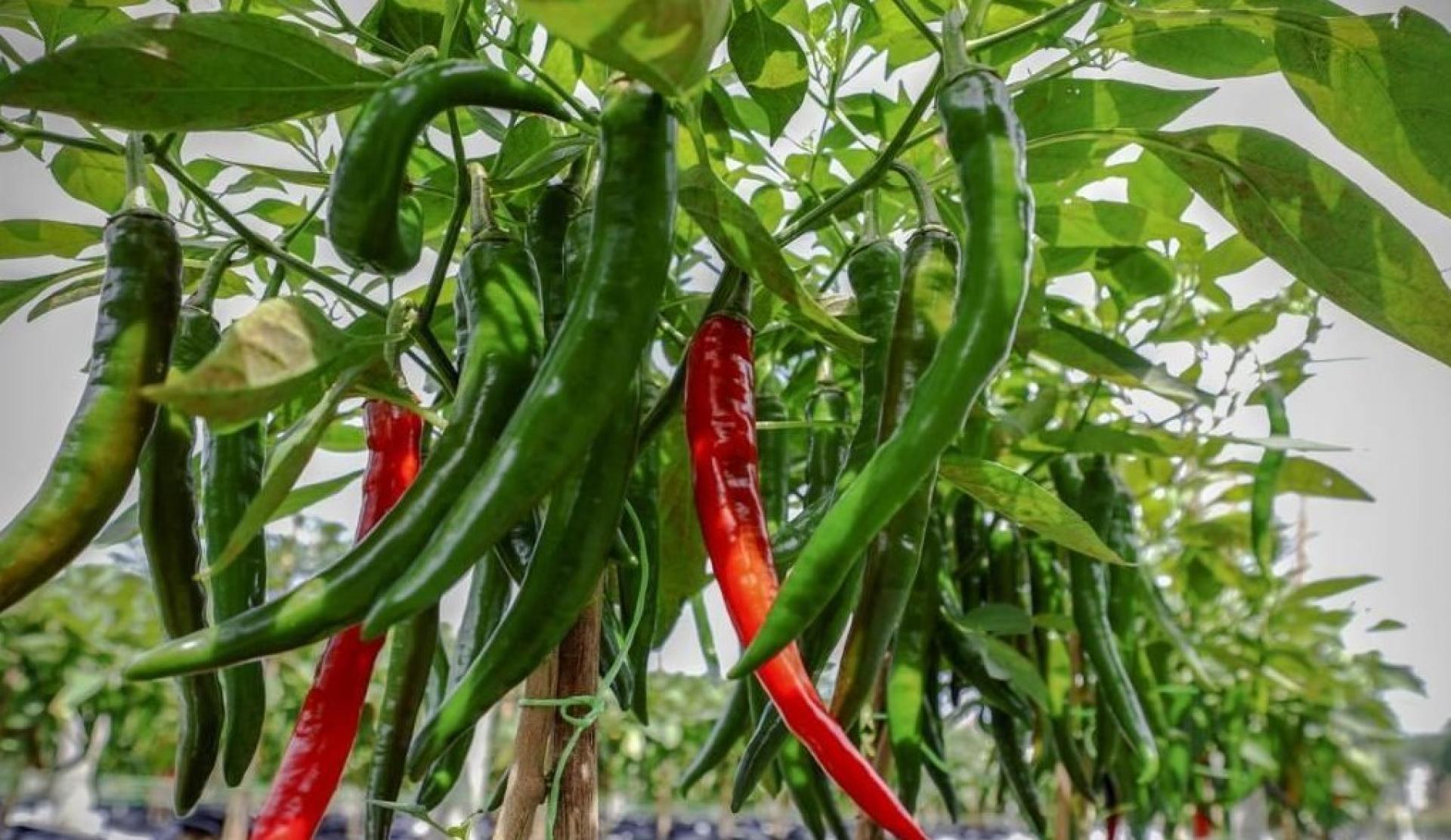Ten participants of the chilli fertigation project under the People’s Income Initiative (IPR)-Agripreneur Initiative (INTAN) expressed excitement and gratitude as their first harvest, planted in August, has produced over 550 kilogrammes (kg) of chili since early November.
Through the joint programme by the Ministry of Economy and the Selangor Agricultural Development Corporation (PKPS), the participants, mainly from the B40 income group, were given the opportunity to manage the project on a Tenaga Nasional Berhad (TNB) pilot site in Pelangi Damansara here.
They not only received a monthly allowance of RM2,100 but also benefited from direct farm sales at RM10 per kilogramme (kg).
Sharing her experience, Rosnah Bidin, 63, a participant who ventured into farming in her golden years, said she never imagined contributing to agriculture on a 10-acre plot with 2,000 polybags that yielded up to 50 kg of chilies.
"I never thought at this age I would receive such support from PKPS and the Ministry of Economy. Whenever we have issues or questions, they always respond well and provide advice on plant care and much more.
“Previously, when planting on my own, the chilli sizes varied. But here, we’re guided to aim for Grade A chillies. We ensure only the best shoots grow, shaping the plants for optimal yield. Now, each plant produces between 1.5 to 2 kilos,” she told reporters during an interview with IPR-INTAN chilli fertigation participants recently.
Another participant, Padmanagan Subramaniam, 56, shared his excitement at the significant yield compared to his previous small-scale planting along ditches or rivers.
“I believe the Ministry of Economy and PKPS have good intentions to improve participants’ income, especially for low-income groups. Before this, we had no guidelines, planting was just trial and error. But this programme is more professional, right in the heart of Petaling Jaya,” he said, noting his harvest has reached nearly 200 kg.
Wan Norsaiza Wan Hasnan, 51, said despite challenges in implementing the IPR-INTAN project, she remains motivated to rise early each day to collect produce, benefiting from an automated irrigation and fertilisation system.
“This is my first time joining such a project. The challenges are many—imagine holding a pen and keyboard for 25 years as a personal assistant, and suddenly working with soil. I’ve learned to identify healthy and sick plants and things I never imagined doing,” she said, encouraging youth as young as 20 to join such programmes for their energy and creativity.
Meanwhile, PKPS Group CEO Datuk Dr Mohamad Khairil Mohamad Razi said the programme aligns with Prime Minister Datuk Seri Anwar Ibrahim’s encouragement for commercial urban farming.
“Previously, urban farming was often located far from residential areas and easier to manage. However, with PKPS, we were tasked with a more challenging responsibility—to implement commercial urban farming at a TNB pilot site, right in the city centre, near flats and condominiums.
"Despite the challenging location, Alhamdulillah, we successfully completed the first phase. Each participant was provided 2,000 polybags, and we offer guidance, technical support, and knowledge on harvesting, fertilising, using Agricultural Internet of Things (IoT), drones for fertilistion, and other agricultural techniques,” he said.
Dr Mohamad Khairil also revealed plans to expand the project to other areas, covering 60 acres (24.281 hectares) that could benefit up to 120 farmers by January next year.
“We have identified 60 acres within local council areas such as Kajang, Petaling Jaya and Ampang Jaya. With support from the state government and Ministry of Economy, we aim to grow chilies and other crops like pineapples,” he added.
He also expressed intentions to involve young people, including university students, in advancing the program with enhanced tools and agricultural technologies.
